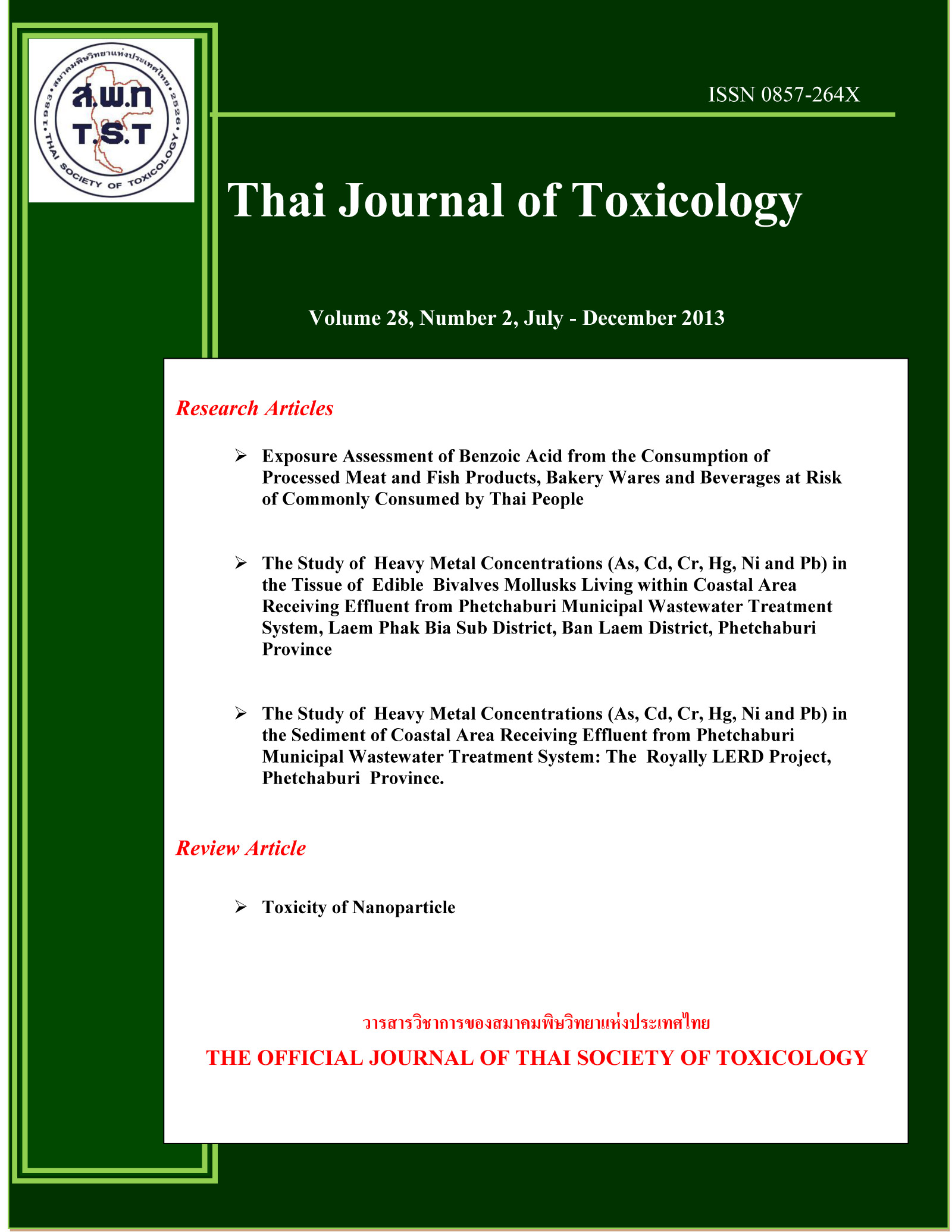Exposure Assessment of Benzoic Acid from the Consumption of Processed Meat and Fish Products, Bakery Wares and Beverages at Risk of Commonly Consumed by Thai People
Main Article Content
Abstract
Benzoic acid and benzoates are general food preservatives using in a variety of processed foods. Consumer should not expose to the chemicals exceeded the acceptable daily intake (ADI). This study aimed to assess the daily exposure of benzoic acid in Thai population from the consumption of popular processed foods using these chemicals as preservatives. Three groups of processed foods commonly consumed by Thai people including 11 items of beverages, 6 items of bakery wares and 8 items of processed meat and fish products were collected from each region of Thailand (1,388 samples) to determine benzoic acid contents. The intake was estimated by combining the concentration of benzoic acid in each food product with the individual food consumption derived from the nation food consumption survey in 2007. Probabilistic exposure assessment was conducted to estimate the degree of exposure at the mean and high levels (97.5th percentile). Risk was characterized by comparing the exposure beyond the ADI.
The mean daily benzoic acid intake (Per capita) in Thai population from the overall consumption of the three groups of processed foods was lower than the ADI. Processed meat and fish products contributed the highest intake followed by beverages and bakery wares, respectively. Children aged 3-6 years exposed to benzoic acid (33% of the ADI) at higher level than adolescences and adults. However, the 97.5th percentile intake of a food item contributed the highest intake in each food group (meatball, sweet cream filled bread and carbonated beverage) combining the mean intake of the other items provided high benzoic acid exposure to 92% of the ADI in young children. Moreover, these children may expose to benzoic acid from other types of processed foods permitted to use benzoic acid and benzoates. It is possible that children who frequently consumed processed foods could be exposed to benzoic acid through total daily food intake at the level exceeding the ADI. Thus young children should be advised to eat small amount of the high risk processed foods.


